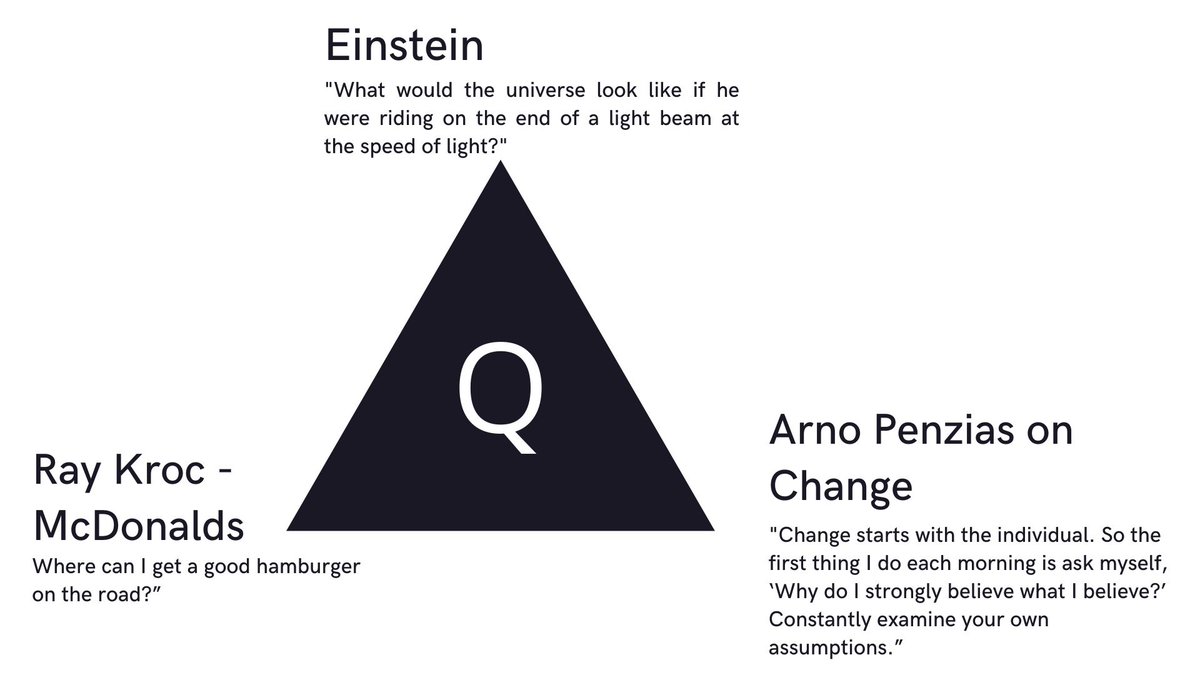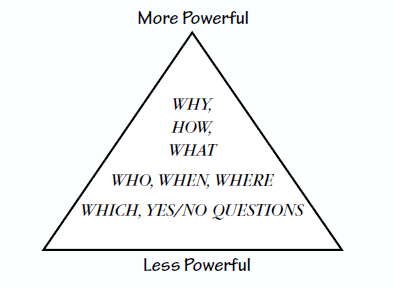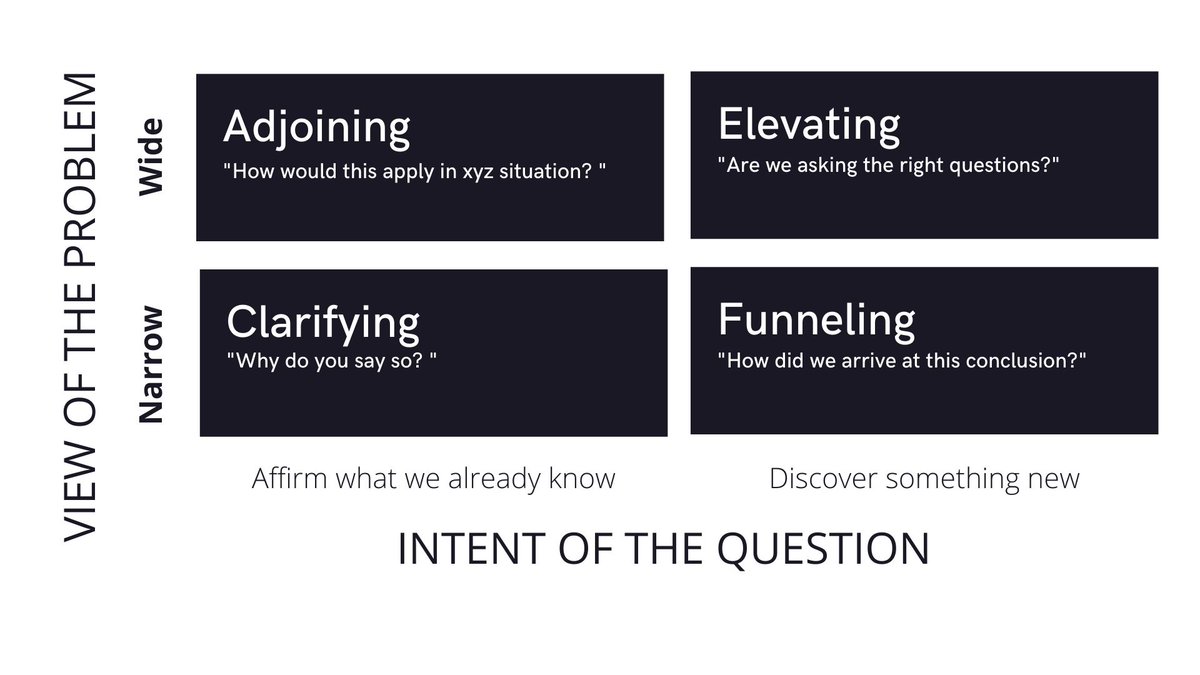What does Einstein, McDonald's and Change have in common?
It is the art of asking powerful questions. Thread.
Read to know more.
It is the art of asking powerful questions. Thread.
Read to know more.
As @elonmusk says, "A lot of times the question is harder than the answer. If you can properly phrase the question, then the answer is the easy part." https://bit.ly/3d1oXIG
Questions open the door to dialogue and discovery. Therefore, amidst polarizing political climate around the world, a global pandemic, and an education system focused on rote learning, it is essential to turn towards asking meaningful questions.
A powerful question has 3 underlying dimensions:
1. Construction
2. Scope
3. Assumption
1. Construction
2. Scope
3. Assumption
1. Construction: Does the question stimulate reflective thinking? Some why questions can evoke defensiveness (Why did you do it that way? instead of I wonder why that happened?)
2. Scope: Is the Q tailored within the realistic and specific context of the situation? (How can we best manage our company? vs. How can we best manage our economy?
Assumption: Qs have implicit or explicit assumptions built in. All stakeholders may not identify with/share these assumptions. Act tactfully. (What did we do wrong and who is responsible?” with “What can we learn from what’s happened and what possibilities do we now see?”
Toyota provides a great example of how asking powerful questions can lead to deeper insights into a challenge.
@ToyotaMotorCorp 's 5 Whys
Sakichi Toyoda - the great industrialist who established Toyota first developed the five whys as a basis of Toyota's scientific approach to understand the nature of the problem till the solution became clear.
Sakichi Toyoda - the great industrialist who established Toyota first developed the five whys as a basis of Toyota's scientific approach to understand the nature of the problem till the solution became clear.
This @HarvardBiz article provides us w/ an overview of how asking different questions can lead to different outcomes. I tweaked their og graph to include more detail.
https://hbr.org/2015/03/relearning-the-art-of-asking-questions
https://hbr.org/2015/03/relearning-the-art-of-asking-questions
This thread by @SahilBloom offers clarity in terms of utilizing first principles as a mental model to ask some foundational questions https://twitter.com/SahilBloom/status/1329458583537397765?s=19
Here's how you can use deliberate practice to ask deeper questions:
1. Assess your current situation
2. Discover the BIG questions
. @JamesClear on Deliberate Practice: https://twitter.com/JamesClear/status/874714985515110400?s=19
1. Assess your current situation
2. Discover the BIG questions
. @JamesClear on Deliberate Practice: https://twitter.com/JamesClear/status/874714985515110400?s=19
3. Generate possibilities i.e. what would your situation look like if the big questions were answered
4. Evolve workable strategies i.e. create a climate of discovery, suspend judgement, connect ideas, explore assumptions and more.
4. Evolve workable strategies i.e. create a climate of discovery, suspend judgement, connect ideas, explore assumptions and more.
This is not an exhaustive list. I believe it is all about creating opportunities for oneself and ones team/organization/students to practice some of these on a daily basis.
"What makes us human, I think, is an ability to ask questions, a consequence of our sophisticated spoken language.” — Jane Goodall
The usefulness of the knowledge we acquire and the effectiveness of the actions we take depend on the quality of the questions we ask.
Source: https://umanitoba.ca/admin/human_resources/change/media/the-art-of-powerful-questions.pdf
Source: https://umanitoba.ca/admin/human_resources/change/media/the-art-of-powerful-questions.pdf
Would love to learn more about the same from you. @ShaneAParrish always inspires.
https://fs.blog/2019/09/power-questions/
https://fs.blog/2017/05/proximate-vs-root-causes/#:~:text=The%205%20Whys&text='%20five%20times%20to%20a%20given,answer%2C%20not%20the%20initial%20statement.
FIN.
https://fs.blog/2019/09/power-questions/
https://fs.blog/2017/05/proximate-vs-root-causes/#:~:text=The%205%20Whys&text='%20five%20times%20to%20a%20given,answer%2C%20not%20the%20initial%20statement.
FIN.

 Read on Twitter
Read on Twitter




